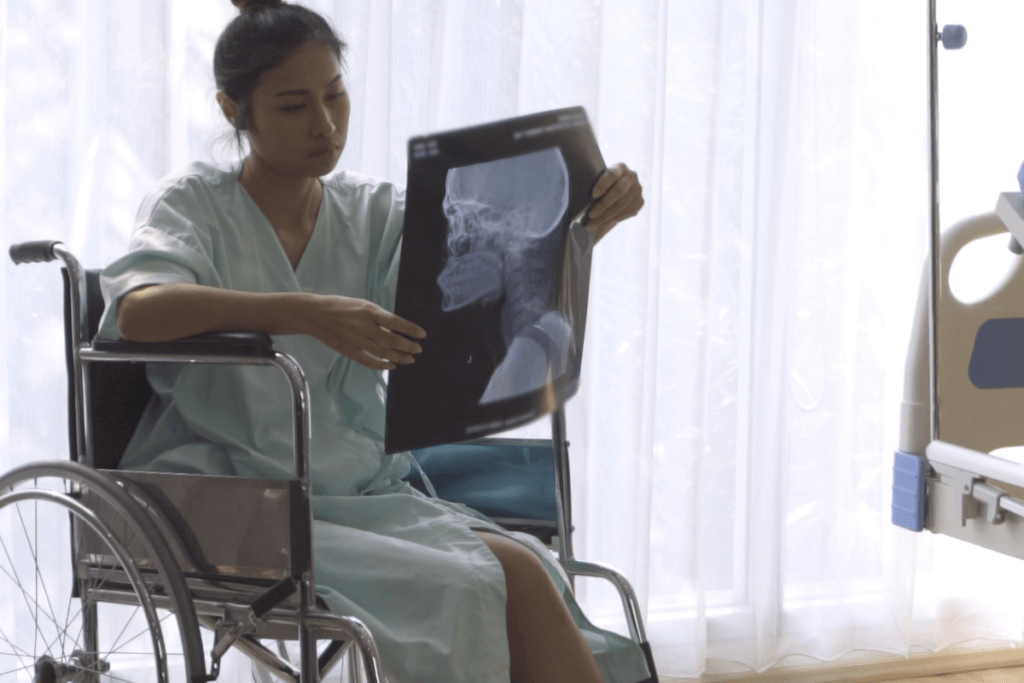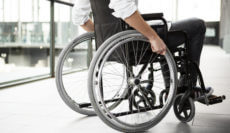Brain Injuries
What is Anoxic Brain Injury

Every cell in our body needs oxygen to survive, and when there is no oxygen supply, that cell, organ, or body dies. The death of cells in the brain prevents electrochemical impulses, interfering with neurotransmitters that transmit messages in the brain that regulate bodily functions and influence behavior. This type of damage is referred to as anoxic brain injury.
You can better understand the devastating effects of anoxic brain injury resulting from a birth injury, misdiagnosis, or medical malpractice by speaking with a Philadelphia medical malpractice lawyer. Diagnosis, treatment, and rehabilitation are essential for individuals who suffer from anoxic brain injuries.
Understanding Anoxic Brain Injury
An anoxic brain injury results from a complete loss of oxygen to the brain, causing cell death after approximately four minutes of oxygen deprivation. Anoxic brain injury is not the result of direct damage to the brain, but the loss of oxygen, usually preceded by a significant health event or severe incident. There are four types of anoxia:
- Stagnant Anoxia: Stagnant anoxia occurs when blood, which carries oxygen, cannot reach your brain resulting in deprivation. This type of anoxia can result from strokes or other pulmonary conditions, including cardiac arrest or arrhythmia.
- Anoxic Anoxia: This type of anoxia is the result of the lack of oxygen from the air we breathe, resulting in suffocation.
- Anemic Anoxia: When the blood is unable to carry enough oxygen adequately, or there is a lack of blood in the body to support the oxygen needs of the brain, anemic anoxia occurs.
- Toxic Anoxia: Chemicals and poisons can prohibit the brain from receiving oxygen from blood cells leading to toxic anoxia.
The Causes of Anoxia
A total loss of oxygen to the brain can result from a health or physical event. It is imperative to receive immediate medical attention. Improper treatment by a doctor can also exacerbate a brain injury caused by anoxia.
Examples of health and physical events leading to anoxic brain injury are:
- Cardiac arrest
- Stroke
- Drowning
- Strangulation
- Choking
- Smoke and carbon monoxide inhalation
- Anesthesia errors
- Excessive medication or drug overdose
- Trachea compression
- Respiratory conditions that interfere with proper breathing
- Low blood pressure
- Brain tumors
- Electrical shock
Symptoms of Anoxic Brain Injury
Anoxic brain injury can have both cognitive and physical effects on the body. Anoxia is usually preceded by unconsciousness or a coma. If the person regains consciousness, a wide range of symptoms may be present that resemble head trauma injuries. Symptoms depend on the amount of tissue damage in the brain and the part of the brain suffering the injury.
Cognitive Effects
- Short-term memory loss: The individual cannot retain new information when it is presented. The hippocampus, where understanding recent information occurs, is extremely sensitive to a lack of oxygen.
- Visual disturbance: The brain cannot process visual information, causing difficulty with focus, or grasping for an object but reaching toward the wrong place. Because the damaged part of the brain is unable to realize it is damaged, a person who is unable to process visual information may still act as if they can see, struggling with the ability to identify shapes, colors, or objects, which is referred to as cortical blindness.
- Poor executive function: The person with anoxic brain injury may lose the ability to focus, particularly on multiple tasks. Making judgments, information processing, and reasoning may suffer.
- Anomia: This term refers to difficulty processing or using words, with common words being misunderstood. It may lead to forgetting the correct word or proper word placement in a sentence.
- A decline in mental state: Depression, confusion, delusions, and hallucinations may result.
Physical Effects
- Apraxia: The inability to remember the sequence to perform everyday tasks such as brushing teeth or using a spoon or fork.
- Headaches
- Quadriparesis: This is defined as a weakness in all four limbs.
- Movement Disorders: Rigidity, muscle spasms, spasticity, jerking movements, or trembling may result from anoxia.
- Seizures
- Lack of bladder and bowel control
- Changes in sleep patterns
- Difficulty swallowing
Treating Anoxic Brain Injury
Pinpointing the cause of the injury is always the priority, allowing doctors to prevent further damage. The longer the person is unconscious, the greater the chance brain death occurs. Once stabilization has occurred with proper treatment, the rehabilitation process can begin.
Treatment paths may vary greatly depending on the symptoms and challenges of the individual. No two individuals will experience the same symptoms of a brain injury. Rehabilitation and treatment options will vary depending on the severity and what brain areas were affected by the loss of oxygen.
Rehabilitation therapies can last for months and even years to restore a maximum level of function to the individual. Four types of treatment can improve the daily life of someone with a brain injury:
- Physical Therapy: The goal is to ease pain and improve movement, increasing the quality of life with activities through prescribed exercise, hands-on care, and patient education.
- Occupational Therapy: Providing the tools to help a person live more independently, occupational therapy encourages and restores the skills needed in daily life using adaptive equipment to make everyday tasks easier.
- Speech Therapy: Cognitive communication disorder results from an injury to the part of the brain controlling the ability to speak. Speech therapy improves communication.
- Recreational Therapy: Therapeutic recreation uses recreation and other activity-based interventions to address anoxic brain injury.
Prognosis
It can be challenging to project the recovery someone will make from an anoxic brain injury. Unfortunately, a full recovery is rare in severe cases, while people with mild injuries may recover fully.
Philadelphia Medical Malpractice Lawyer
Injuries can happen so fast it is difficult to comprehend their outcome in our lives. While some injuries are unavoidable, some of the most devastating injuries are caused by the negligence of the medical professionals we trust to care for our health. Recovery from an anoxic brain injury does not happen overnight, changing the course of our lives and those around us.
The Philadelphia brain injury lawyers at Lopez McHugh LLP can compassionately walk you through your options for legal action. Our ability to guide you in challenging decisions is the first step in a recovery plan that can benefit your entire family. Contact us today to learn how we can help you and your loved ones.







